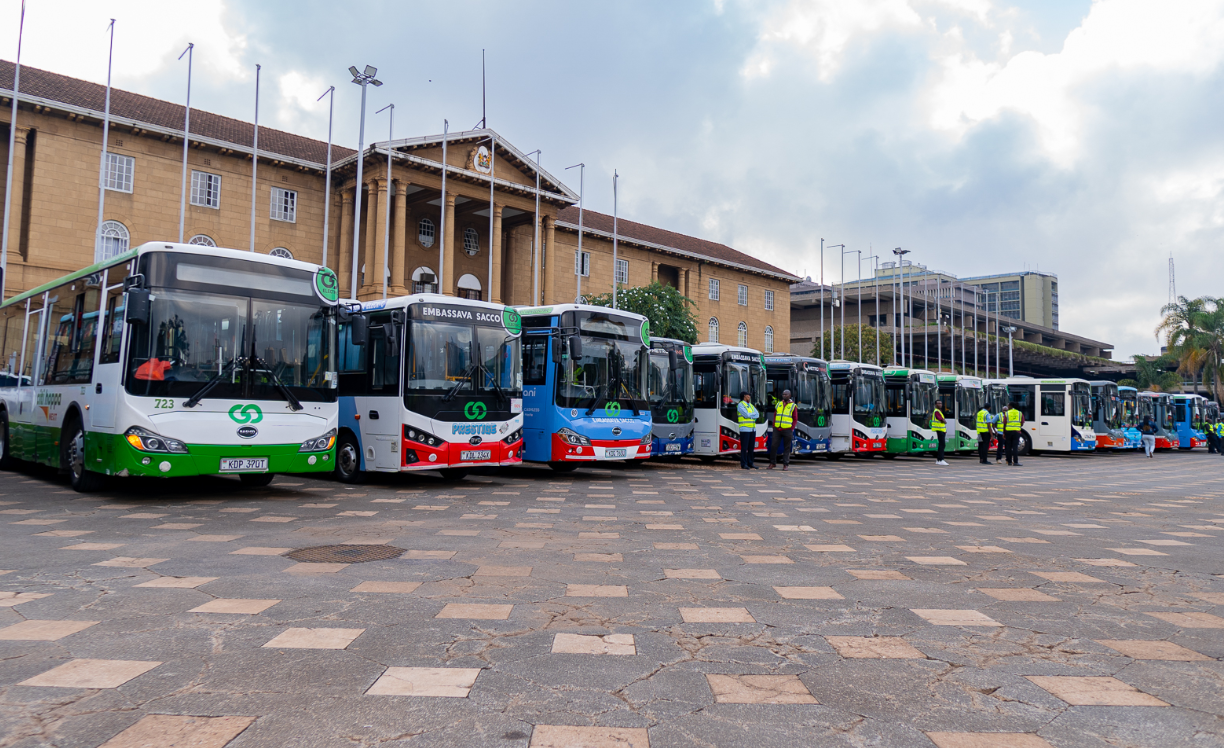
Electric bus assembler BasiGo has received a major boost in Kenya after Proparco yesterday announced completion of an investment in the company, for an undisclosed amount.
Proparco is France's Development Finance Institution (DFI) and the private-sector arm of the French Development Agency (AFD).
Its investment in BasiGo now forms part of the AFD Group’s wider drive to deliver low-carbon urban mobility, where it commits around €1bn (Sh150 billion) annually to transport and mobility worldwide.
The investment is expected to boost BasiGo whose monthly output capacity recently doubled to 20 buses after raising Sh5.4 billion last year to expand its operations and assembly in East Africa, with a key focus on Kenya and Rwanda.
The capital combined equity and debt financing, one of the most significant investments in the region’s e-mobility space. It secured Sh1.3 billion from the United States International Development Finance Corporation (DFC) in 2024.
This was part of a funding round led by Africa50, the pan-African infrastructure investor and asset manager, which led a $42 million (Sh5.5 billion) fund drive for the company, which also included a $17.5 million (Sh2.3 billion) in debt from British International Investment (BII).
BasiGo which has partnered with Matatu Saccos for inter-city routes mobility has an ambitious target of having delivered at least 1,000 buses by 2027. About 100 electric buses have so far been deployed across Kenya and Rwanda.
It locally assembles electric buses, develops and operates charging infrastructure and partners with bus operators to offer a cost-effective electric alternative to diesel for mass public transport.
“BasiGo’s locally assembled electric buses cut emissions, improve air quality and support quality jobs—fully consistent with Proparco’s mandate on the continent, the Choose Africa initiative and our commitments under the Paris Agreement,” CEO and Co-Founder of BasiGo, Jit Bhattacharya, said.
Proparco regional director for East Africa, Jean GuyonnetDupérat, said: “By supporting BasiGo, we are helping to unlock a new generation of clean, reliable mass public transport solutions for tens of thousands of passengers in Kenya and Rwanda and to scale this solution in other African cities.”
Since its inception in 2021, BasiGo’s activities have delivered key outcomes in terms of climate change mitigation, as electric buses reduce CO₂ emissions by an estimated 70–90 per cent compared to diesel buses, (improved road safety, and public health through reduced air pollution.)
The government this year renewed its support for green transport where a slow uptake of e-mobility has been blamed on policy gaps.
The country had targeted to have at least five per cent of newly registered vehicles to be electric by 2025, as outlined in the National Energy Efficiency and Conservation Strategy.
This was part of a broader strategy to transition to e-mobility, which includes reducing greenhouse gas emissions and increasing the use of renewable energy the transport sector.
The Roads and Transport Ministry unveiled Kenya's first Electric Mobility (e-mobility) Draft Policy in March last year, which it described as “a pivotal moment for Kenya, ushering in a new era in transportation.”
This is aimed at guiding the development of electric mobility in all transportation modes–road, rail, air and maritime, by providing a transition framework from the use of conventional internal combustion engine (ICE) vehicles.
Benefits include reduction in emissions, lower operating costs, decreased reliance on imported fuels and the creation of green jobs.
“Electric mobility has obtained executive approval to make the policy operational, but the Traffic Act must be updated to accommodate emerging technologies,” Roads and Transport CS Davis Chirchir said.
To reignite the push for EVs adoption, National Treasury proposed a number of measures to support the adoption of e-mobility in the country with the private sector mainly importers and assemblers the main target.
The Finance Bill 2025 amended the VAT status to exempt for the supply of electric buses of tariff heading 87.02 (motor vehicles for the transport of 10 or more persons, including the driver, in a move expected to increase the uptake of electric buses, which are increasing on the Kenyan roads mainly city transport led by Nairobi.
While manufacturers could be disadvantaged as they cannot claim input tax, it is expected to continue driving the e-mobility growth in the country as opposed to imposing taxes on the same, which could curtail growth.
The supply of electric bicycles and solar and lithium-ion batteries was also exempted from the 16 per cent VAT tax. Exempt supplies are not taxable and any related input tax is therefore not deductible.
Total EV registration in Kenya was at 9,047 vehicles (0.2 per cent of total registered vehicles) in May this year, having increased from 2,694 in 2023.
















